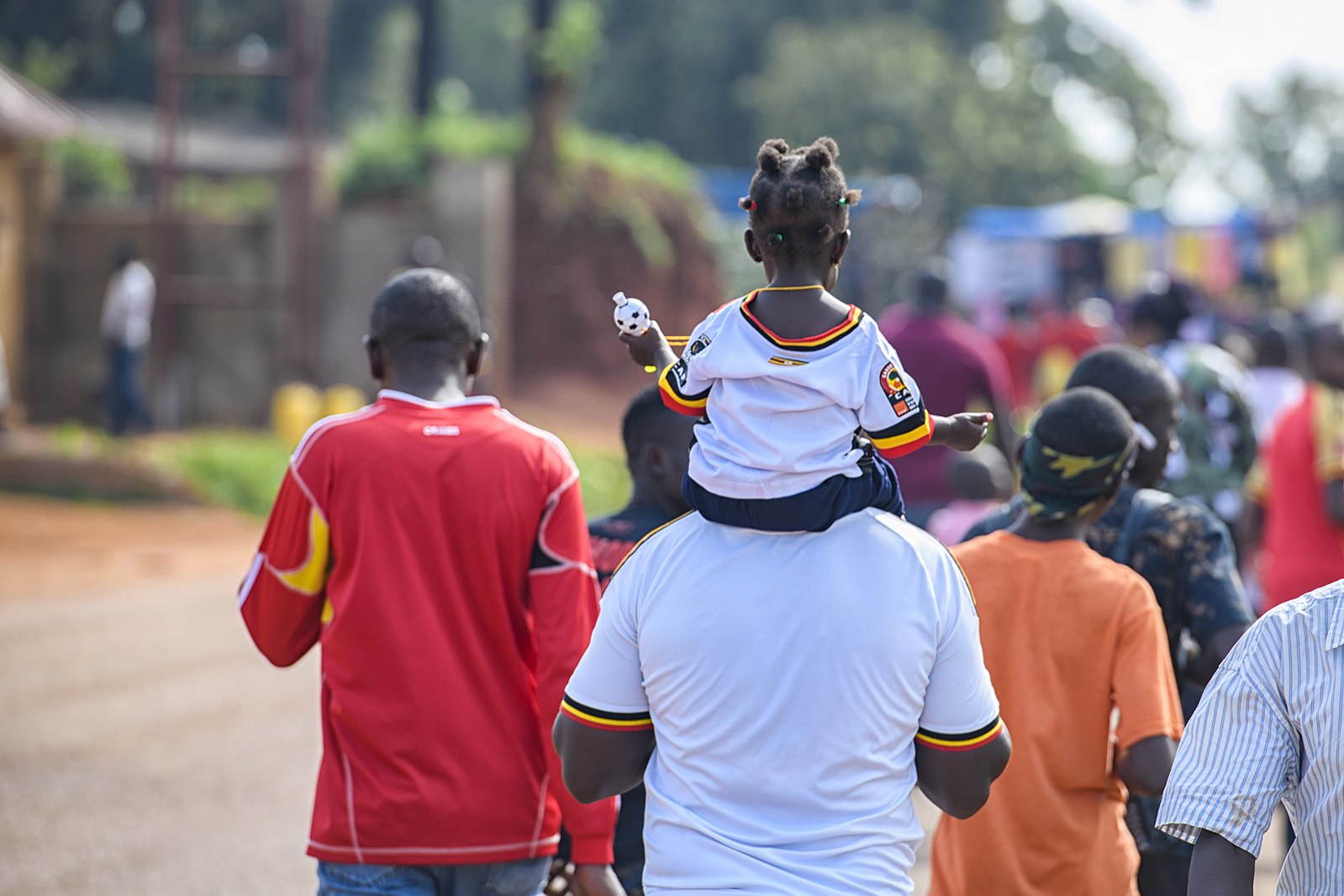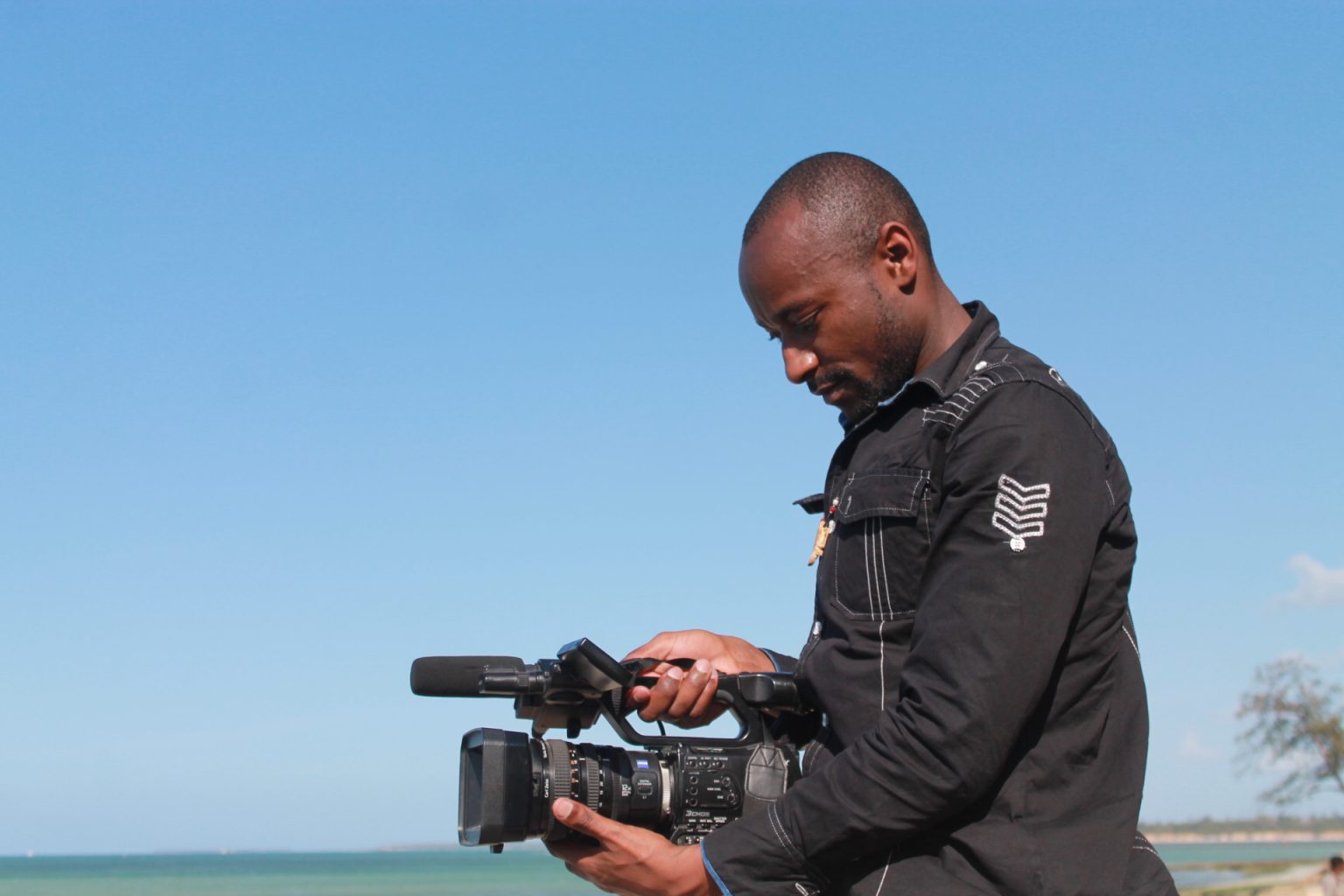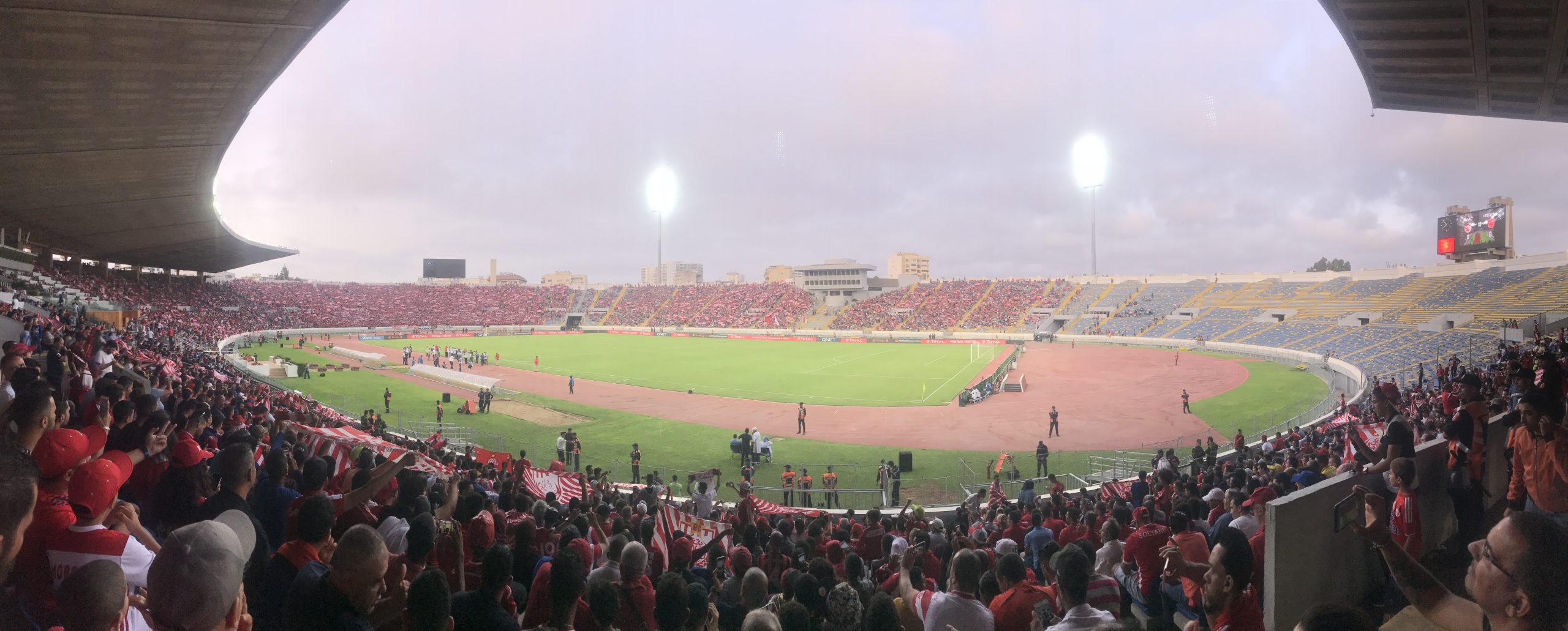AFCON goes east

In September 2023, Kenya, Tanzania and Uganda successfully secured the hosting rights for the 36th edition of the Africa Cup of Nations (AFCON) tournament, which is set to take place in 2027. The three countries’ Pamoja bid represents a pivotal moment for East Africa, indicating ambitions beyond athletics, where the trio have enjoyed an abundance of success in recent years.
Yet, Kenya, Tanzania and Uganda will need to work closely together to overcome numerous hurdles if they are to deliver a tournament as successful as the one hosted by Côte d’Ivoire over the last month. When Nigeria and Ghana became the first countries to co-host the tournament in 2000, the decision was triggered by Zimbabwe’s failure to meet infrastructure requirements set by the Confédération Africaine de Football (CAF). Transport, stadium, health and hospitality infrastructure deficits have precluded many other nations from securing the rights to host the tournament ever since. Against this backdrop, co-hosted AFCON events have remained rare, with Equatorial Guinea and Gabon the last duo to join forces in 2012.
Will the region’s authorities play ball?
East Africa’s relationship with hosting AFCON is multifaceted, with a history of successes and failed attempts, dating back to the inception of the tournament. Sudan hosted the first edition in 1957 and again in 1970, while Ethiopia hosted AFCON in 1962, 1968 and 1976. Uganda and Tanzania have never bid to host the tournament, whereas Kenya won and subsequently lost hosting rights in 1996 and 2018, withdrawing in the first instance and opting out in the second.
Kenya’s withdrawal from hosting the 1996 AFCON occurred amid a sensitive political transition, with the second multi-party elections since independence scheduled for 1997. Former President Daniel Arap Moi viewed hosting as an unnecessary risk amid political uncertainty, pointing to the significant number of opposition members on the tournament organising committee. The potential for these rivals to capitalise on AFCON’s success likely influenced the decision to relinquish hosting duties, with Moi’s waning influence still enough to afford him the final say on the matter. In 2018, Kenya lost hosting rights to Morocco due to non-compliance with the CAF timeline for infrastructure improvements. This decision came after inspection visits highlighted a lack of government urgency, with attention diverted to the electoral crisis triggered by the Supreme Court’s nullification of the 2017 poll results.
Political battles
Nearly three decades after Kenya’s aborted 1996 bid, the Pamoja bid faces similar political and logistical challenges. Forthcoming general elections in all three host nations are likely to result in shifts in priorities which will do little to address existing infrastructure deficiencies, but which pose significant threats to preparations for the event. In Uganda, President Yoweri Museveni is grappling with internal party dynamics as he attempts to manage his succession, which appears to focus on positioning his son, General Muhoozi Kainerugaba, to inherit power. This complicates Uganda’s political landscape ahead of elections in 2026, particularly given sustained opposition pressure from prolific campaigners such as Robert Kyagulanyi, better known as Bobi Wine. In Tanzania, President Samia Suluhu Hassan has gradually strengthened her hold over the ruling Chama Chama Mapinduzi (CCM) since inheriting power in 2021, but she will nevertheless have to secure nomination as CCM’s presidential candidate ahead of polls next year. As campaigning intensifies in 2025, government bandwidth is likely to narrow, delaying critical works on AFCON infrastructure.
Kenya’s forthcoming 2027 elections also introduce uncertainty, with President William Ruto’s focus on consolidating power potentially impacting the prioritisation of the games. With the polls scheduled for August, and the tournament likely to be held in February or March, the Ruto administration will need to muster the strength to ensure the tournament goes off without a hitch while also galvanising the support required to secure re-election. The Kenyan leg of the tournament risks being complicated by corruption, mismanagement, a misalignment with CAF standards, and a lack of political goodwill, as was the case in 2018. Ruto may be an advocate of efficiency and timely delivery, but he has a track record of appointing deeply political individuals who fail to uphold his high standards. In the event of matches in Nairobi falling short of CAF standards, Ruto may well demand accountability from those responsible, in a bid to distance himself from any shortcomings and boost his own re-election prospects.
Infrastructure demands
To host the tournament, CAF requires six stadiums seating 15,000 to 40,000 fans, alongside upgraded hospitality, transport, health and training infrastructure, all of which must be within reach of the stadiums. At present, only Tanzania has a CAF-approved facility equipped to host an event of this magnitude: the Benjamin Mkapa Stadium in Dar es Salaam. Uganda has committed to renovating the Mandela National Stadium outside Kampala and is building two other facilities, to increase the regional tally to four. Meanwhile, Kenya’s main stadiums, Nyayo and Kasarani, both in Nairobi, remain in a state of disrepair, as a result of refurbishment plans being politicised by successive regimes.
The local football associations will need to lean heavily on governments for financing to secure these upgrades, owing to their limited stature and revenue streams. The hosts do not have an illustrious footballing history, with Uganda’s 1978 runners-up medal the highest honour among them. However, previous editions of the tournament have demonstrated the importance of external funding and sponsorships to ensure a successful event. Tanzania were the only one of the co-hosts to secure qualification for the most recent AFCON, but went out at the group stage. The trio will need to secure sporting success at the next tournament in Morocco if they are to pique the interest of deep-pocketed sponsors. If the Kenyan, Tanzanian and Ugandan teams fail to qualify for that edition, it will be hard to see how they might capitalise on the opportunities offered by automatic qualification for the 2027 tournament.
At present, the three national sporting bodies remain plagued by issues. The Football Kenya Federation (FKF) has consistently undercut the national team and the FKF Premier League, the national division, through mismanagement and corruption. In February 2022, FIFA banned FKF over corruption allegations, but in November 2022 reversed its decision following a reconstitution of the body under Sports Cabinet Secretary Ababu Namwamba, who has retained office under President Wiliam Ruto. However, as a result of the turbulence Kenya was suspended from CAF at the time that the qualification draws took place, ruling the team out of the running for Côte d’Ivoire. Uganda fired national team coach Milutin Sredojević in September 2023 after the team failed to qualify for the latest tournament. Ugandans are quick to acknowledge that the team lacks the technical quality, training facilities and finances to make meaningful progress ahead of the next edition in Morocco. Tanzania, meanwhile, qualified for the most recent tournament but had a dismal showing resulting in the firing of Adel Amrouche as coach.
The pressures that come from hosting such a prestigious tournament may threaten to overwhelm unprepared hosts, but it can also propel them to diplomatic and sporting success. AFCON presents a unique opportunity for Tanzania, on an economic rise, to showcase its growth, and for Uganda to shake off unfair perceptions of its sluggishness, while Kenya will look to prove itself as more than a nation of long-distance runners. The path to hosting is paved with good intentions. Let’s hope they can be realised.
About the Authors
Selina Onyando is a consultant at Africa Practice focusing on tech policy and the creative economy. Selina can be contacted at [email protected].
Victor Kimondo is a consultant at Africa Practice with a particular focus on energy, extractives and philanthropic work. Victor can be contacted at [email protected]
Proud to be BCorp. We are part of the global movement for an inclusive, equitable, and regenerative economic system. Learn more


